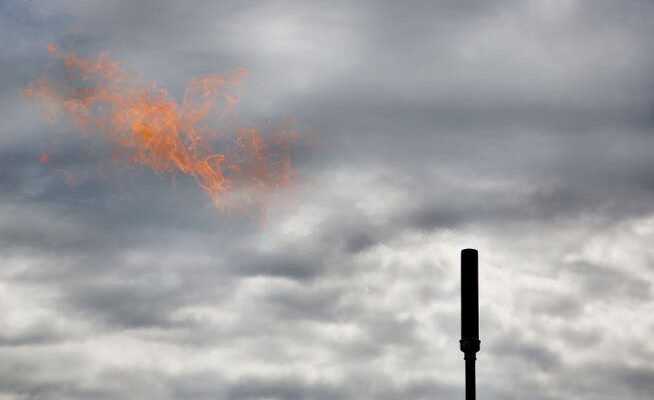On Wednesday, the Federal Council passed an urgent ordinance to avoid a serious shortage.
Most of the annual natural gas consumption in Switzerland occurs in the winter.
How would you make ends meet without Russian natural gas? This question concerns Europe. Russian natural gas has also played a significant role in Switzerland. In 2021, natural gas accounted for around 15 percent of total energy consumption in Switzerland; about 40 percent of this natural gas originally came from Russia. According to industry information, the main uses in Switzerland are space heating and industrial heat processes.
In consultation with the gas industry, the federal government has held discussions in order to have sufficient reserves for the coming winter. This is intended to cushion the consequences of a possible failure of Russian gas supplies. The majority of annual consumption in Switzerland occurs in winter.
On Wednesday, the Federal Council passed an urgent ordinance to avoid a serious shortage. The ordinance is based on a concept that the gas industry has developed together with the authorities. It contains specifications for the regional gas network operators (Ticino, Eastern Switzerland, Central Switzerland, Mittelland and Western Switzerland). The federal government prescribes a total physical reserve of 15 percent of annual gas consumption in Switzerland; the 15 percent corresponds to around 6 terawatt hours and should be available from the beginning of November.
The reserves are abroad
Since Switzerland itself has no relevant storage capacity, the required physical reserves must be secured through contracts with providers abroad (especially in neighboring countries). According to federal information, around half of the required reserves have already been booked by two Swiss regional companies in France. According to industry information, the 15 percent mark is based on the requirements of the EU for its member countries without their own storage capacities.
In addition, the Federal Council is demanding that Swiss gas network operators buy options for non-Russian gas for a further around 6 terawatt hours by the beginning of November. This should cover 20 percent of Swiss winter consumption. These options are intended to enable gas to be purchased at short notice for a fixed fee if required. The Federal Council named France, Germany, Italy and the Netherlands as possible procurement countries.
Some implementation questions are still open, as the Federal Council explains. For example: when will the gas reserve be triggered and who can use the reserve and at what price?
Even the required reserves will not offer absolute security. The question arises not only with the options, but also with the physical reserves: How can it be ensured that the gas actually gets to Switzerland in the event of a European shortage? According to industry information, Switzerland is a small fish with a share of just under 1 percent of total European gas consumption, but discrimination cannot be ruled out. All the more so since relations between Switzerland and the EU are somewhat chilly after negotiations on a framework agreement were broken off. However, according to observers, Switzerland plays a certain role in European gas supply as the location of an important north-south pipeline.
assurances desired
The Association of the Swiss Gas Industry called on the Federal Council to make further efforts to obtain commitments from European countries that the gas purchased would actually be delivered to Switzerland if required. In essence, it is about the non-discriminatory consideration of Swiss customers by European suppliers. The industry is running open doors with its concerns in federal Bern, as the government made clear in its statement: “The Federal Council plans (. . .) to intensify bilateral contacts in order to conclude bilateral agreements to secure access to the to probe storage.”
